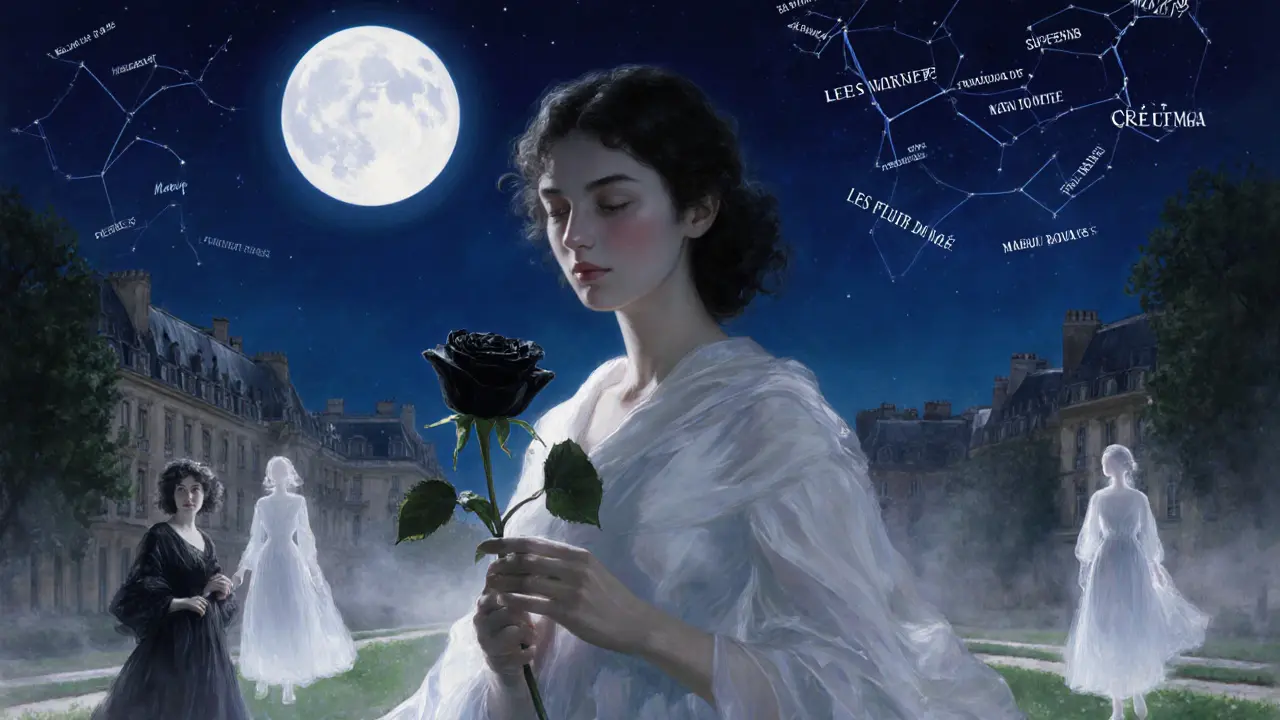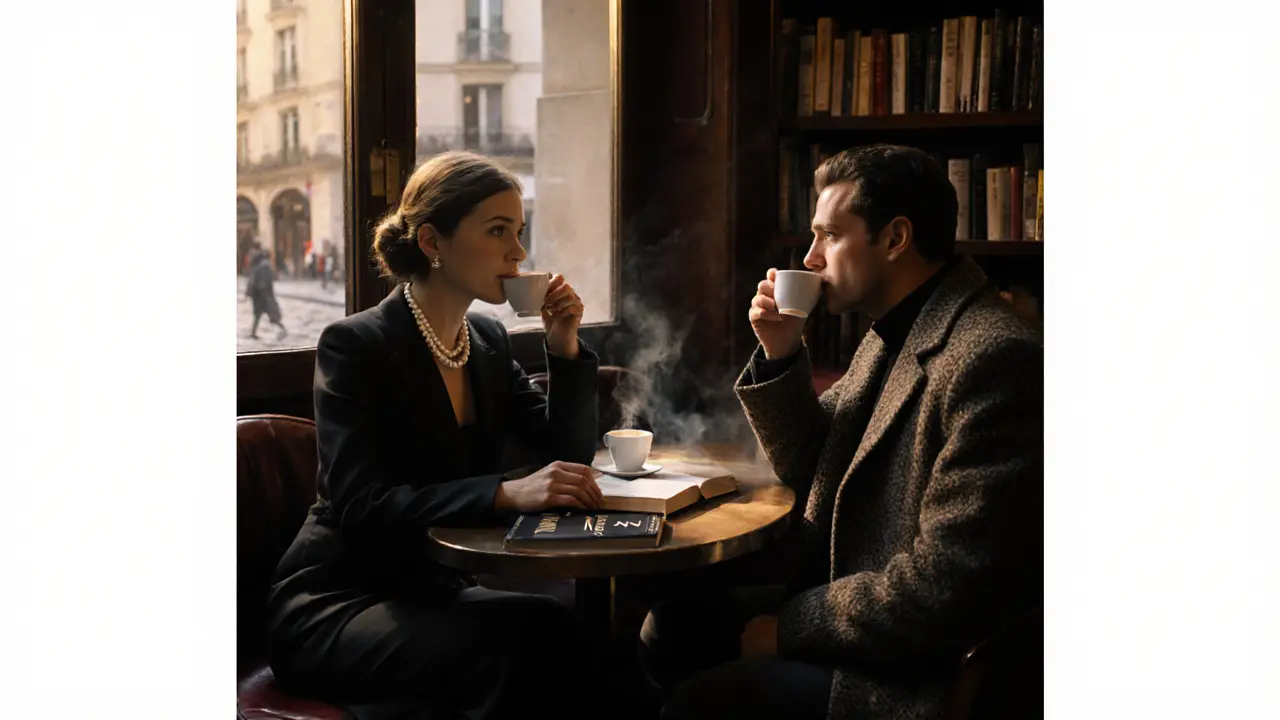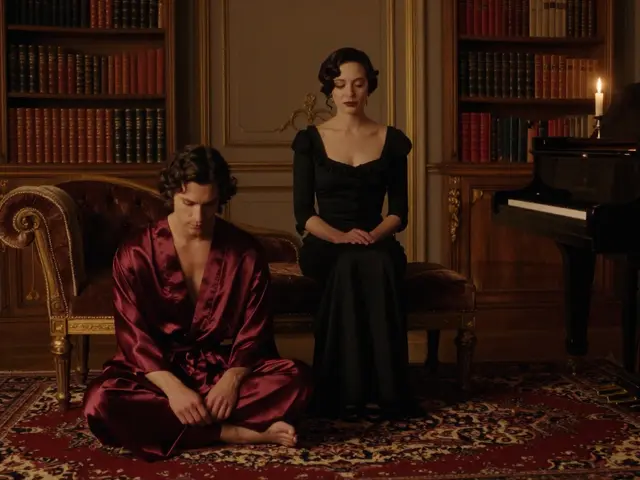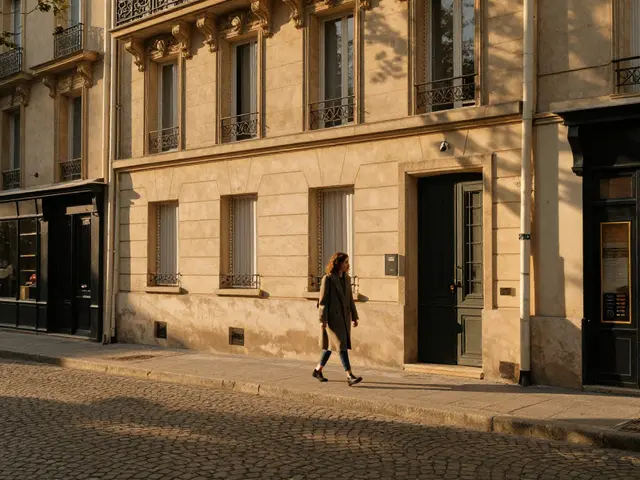When people think of Paris, they often picture cobblestone streets, cafés with steaming espressos, and the quiet elegance of the Seine. But beneath the postcard beauty lies a deeper, older story-one written not just in stone and paint, but in books. French literature didn’t just describe Parisian life; it helped shape how the city sees itself, including its most misunderstood corners: the escort industry.
The Romanticization of the Courtesan
In the 18th and 19th centuries, French novels turned courtesans into tragic heroines, not criminals. Authors like Honoré de Balzac and Émile Zola didn’t just write about women who exchanged companionship for money-they gave them names, voices, and inner lives. In Balzac’s La Cousine Bette, the character Valérie Marneffe is ambitious, calculating, and deeply human. She uses her sexuality as leverage in a world that gave women few other tools. Zola’s Nana took it further: his eponymous protagonist is a prostitute who becomes a national obsession, a symbol of both decadence and freedom. These weren’t sensationalist tales meant to shock. They were social critiques. Writers exposed how poverty, class, and gender inequality forced women into survival sex work. But they also celebrated their agency. That duality-victim and victor, object and subject-still echoes in how Parisian escorts are portrayed today. Many women working in high-end escort services today cite these literary figures as inspiration. They don’t see themselves as mere commodities. They see themselves as modern-day Nanas: intelligent, independent, and in control of their own narratives.The Symbolist Poets and the Myth of the Enigmatic Woman
While novelists gave escorts humanity, poets gave them mystery. Charles Baudelaire’s Les Fleurs du Mal turned women into symbols: the dark angel, the femme fatale, the unreachable muse. His poems didn’t describe real women-they described the longing, guilt, and desire men felt around them. This wasn’t just poetry. It was cultural programming. In Paris, the idea of the enigmatic woman became a brand. The escort who doesn’t explain herself, who speaks little but leaves a lasting impression, who is more art than service-that’s the archetype born from Symbolist verse. Today, agencies in the 7th and 16th arrondissements still market their escorts using this imagery: “a woman of secrets,” “a silent companion,” “a living poem.” It’s not just marketing. It’s inherited mythology. This literary ghost still haunts the industry. A woman who reads Proust, quotes Rimbaud, or wears vintage Chanel doesn’t just attract clients. She fulfills a fantasy written a century ago. The demand isn’t for sex. It’s for the illusion of intimacy with someone who seems to belong to another era.Modern Escorts as Literary Heirs
Fast forward to 2025. Many escorts in Paris don’t just work in the industry-they study it. It’s not unusual to meet a woman who holds a degree in French literature and works evenings as a companion. She might spend her afternoons analyzing Flaubert’s Madame Bovary and her nights offering the same emotional depth her literary heroes described. One woman, who goes by the name Élise in her profiles, told a journalist in 2023: “I don’t sell time. I sell presence. That’s what Balzac did for Valérie. He made her present. Not just her body, but her mind. That’s what I do.” She’s not alone. Online forums for Paris escorts are filled with references to Colette, Marguerite Duras, and even Simone de Beauvoir. They don’t just quote them-they live by them. This isn’t performative. It’s cultural continuity. The literary tradition gave these women a language to reclaim their identity. They’re not “girls for hire.” They’re inheritors of a tradition that saw sex work as a form of resistance, of self-definition, of art.
The Role of the Literary Parisian Café
The places where these stories were born-the cafés of Saint-Germain-des-Prés, the salons of Montparnasse-are still the same places where many escorts meet clients today. The Café de Flore, once frequented by Sartre and de Beauvoir, now sees men in tailored coats meeting women who quote Camus over espresso. The ritual hasn’t changed. The setting hasn’t changed. Only the roles have shifted slightly. These cafés aren’t just venues. They’re temples of French intellectualism. And in that space, the escort isn’t an outsider. She’s a participant. She reads the same books, understands the same references, and navigates the same social codes. That’s why clients pay so much more for companionship in the 7th arrondissement than in the 18th. They’re not paying for sex. They’re paying for the illusion that they’ve stepped into a novel written by Proust himself.The Darker Mirror: Literature as Justification
But literature didn’t just elevate the escort-it also sanitized exploitation. The romanticized courtesan became a way for society to ignore the violence and coercion that still existed. Zola wrote about Nana’s rise, but rarely about her fall. Balzac gave Valérie intelligence, but not safety. The same way modern clients might idealize the “educated escort,” they often ignore the systemic pressures that push women into the industry. There’s a dangerous myth here: that because a woman reads Proust, she’s not vulnerable. That because she speaks five languages, she chose this life freely. But choice is layered. Economic hardship, lack of social safety nets, and the collapse of traditional jobs still drive women into escort work-even in one of the world’s wealthiest cities. French literature gave these women dignity. But it also made it easier for society to look away from their suffering.
The Legacy Today
Today, the influence of French literature on the Paris escort industry isn’t just historical. It’s active. Agencies use literary quotes in their marketing. Women choose pseudonyms from novels. Clients request “a woman like Léopold Sédar Senghor’s muse” or “someone who makes you feel like you’re in a Colette short story.” The industry still thrives because it’s not just about physical presence. It’s about emotional resonance. It’s about being seen-not as a transaction, but as a character in a story worth telling. And that’s the real power of French literature: it turned survival into art. It turned sex work into a reflection of Paris’s soul. Whether you admire it or critique it, you can’t understand the Paris escort industry without understanding the books that shaped it.What This Means for Clients and Workers
For clients, this means the experience is deeper than they realize. They’re not just hiring a companion. They’re stepping into a centuries-old cultural ritual. The woman they meet may know more about Flaubert than they do. She may have spent her afternoon writing a paper on gender in 19th-century French novels. That’s not a gimmick. That’s the norm. For women in the industry, literature offers both armor and identity. It gives them a way to define themselves beyond the stigma. But it also carries a burden: the expectation to be poetic, mysterious, and emotionally intelligent on demand. That’s a heavy weight to carry. The truth? The Paris escort industry isn’t just about money. It’s about meaning. And meaning, in this city, has always been written in books.Is the Paris escort industry directly influenced by French literature?
Yes. French literature, especially from the 18th and 19th centuries, created enduring archetypes-like the tragic courtesan, the enigmatic muse, and the intelligent femme fatale-that still shape how escorts are marketed, perceived, and even how they see themselves. Writers like Balzac, Zola, and Baudelaire didn’t just describe sex work; they gave it emotional depth and cultural legitimacy.
Do modern Paris escorts read French literature?
Many do. It’s common for escorts working in high-end or intellectual circles to have backgrounds in literature, philosophy, or the arts. Some hold degrees from French universities. Reading Proust, Colette, or Simone de Beauvoir isn’t just a hobby-it’s part of their professional identity. Clients often seek out women who can discuss literature, history, or politics, making literary knowledge a valuable asset.
Why do clients pay more for escorts in the 7th arrondissement?
Because the 7th arrondissement is tied to Paris’s literary and intellectual legacy. Cafés like the Café de Flore and locations near the Luxembourg Gardens are steeped in history. Clients aren’t just paying for companionship-they’re paying for the illusion of stepping into a novel. Women who work there often have strong cultural knowledge, speak multiple languages, and embody the refined, mysterious persona shaped by French literature.
Is the romanticization of escorts in literature harmful?
It has two sides. On one hand, it gave women in the industry dignity and complexity, countering dehumanizing stereotypes. On the other, it created unrealistic expectations-pressuring women to be poetic, silent, and emotionally perfect. It also allowed society to ignore the economic pressures and systemic inequalities that still push women into the industry. Literature elevated the image, but didn’t fix the reality.
Are there any famous escorts in Paris who were inspired by literature?
While few publicly identify as literary-inspired, many use literary pseudonyms and reference classic works in their profiles. One known figure in the 2020s, who goes by “Léonie” in her listings, is a former literature student who writes blog posts comparing her clients’ behaviors to characters in Dumas and Stendhal. She’s not unique. Online, dozens of escorts in Paris reference Balzac, Zola, or Colette in their bios as a way to signal depth and distinction.



